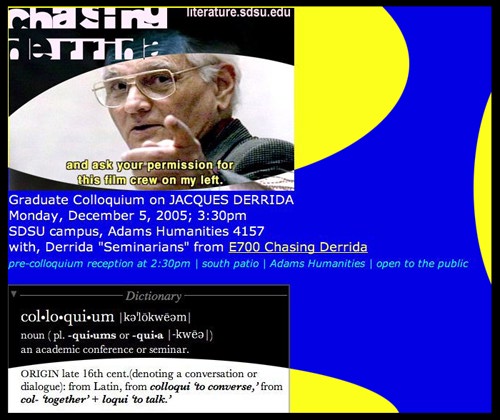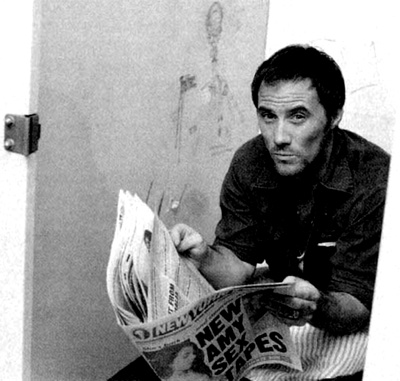ENGLISH 700 Chasing Derrida Lights, Camera, Philosophy Professor William Nericcio
Derrida was a big flirt, really,
and the only way to snag our quarry, will be to go the other way, to give
our handsome prey the brush-off, ignore the seductive charms of his alluring
trace. To that end, the class includes films by director Hal Hartley (Flirt)
and screenwriter Charlie Kaufman (Eternal Sunshine of a Spotless Mind)
and Kirby Dick/Amy Ziering Kofman (Derrida); each of these cinematic
visionaries cleverly parse the sinewy, luscious labyrinths of Derridean
architecture in a way that deepens our understanding. |
|
Required Texts
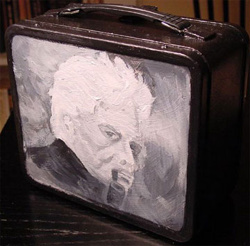
Working LIST of required TEXTS
Links above are just for reference--i get NO amazon kickbacks; use the campus bookstore or multi-site search engines like this one or this one for the best deals. Seminar Expectations
Paper Expectations
What will this beautiful essay be about? That's the fun part! Consider the obvious: you are a graduate student. What does that mean? It means that you are a scholarly apprentice of sorts. You are one in a long line of individuals who aspire to scholarship, and, in the case of this class, a Derrida-traced exegesis of the first order. Like it or not one of the things which will determine whether or not you have what it takes to get past the gates at the ivory tower is your scholarly writing. It used to be that writing for literary journals was an extended exercise in pain and self-abuse. But the field is changing and so are its journals. When you arrive December 5 at 3:30pm, your fatigued palms will be holding a 15 to 20 page essay (please don’t write past 20 pages, quantity is never an attractive proxy for quality). The essay should be typed, double-spaced and carefully proofread. It should not have any special cover page or plastic cover--a staple or paper clip in the upper left hand corner is fine. That is the easy part. How will you go about imagining this essay? Please have your essay derive or be based in large part on a text, author, director, theme, genre which is part of the required material for our class. Derrida being our focus, I imagine our Algerian guru will make MORE than a cameo appearance in your essay; that having been said, however, I am also open to you conceiving of your submission to me as a draft chapter from your Master's thesis, or a possible submission to critical journal. Footnote vs. endnote? MLA style vs. Chicago Style?
Think of your DERRIDA essay, then, as an exercise in role playing--any question you might have about format, tone, styles, footnoting tactics and the like will be answered by the editorial policy of the journal you select as your guide. Do please submit WITH your DERRIDA essay, a copy of one essay from the journal you have selected. Do note that our library has great, full-text, online journal archives like PROJECT MUSE and JSTOR. If you have any question as to the appropriateness of a journal just give me a call or pull me aside and ask me. What can you write on? Well just
about anything. I imagine the best exercise will be to throw all your books
and notes on a table, think about what are some of the provocative Derridean
issues which have stayed with you and then head off to the library and
those endless stacks of scholarly journals. By the time you’ve
paged through all those journals and get back to your books and notes,
you’ll have a firmer grasp on the goals of your Derrida-filled
analytical adventure. You’ll also probably have a headache--welcome
to Academe.
|
|
Seminar Schedule & Assignments |
 |
| September
12
enter our first seminar having carefully read DERRIDA's LETTER TO A JAPANESE TRANSLATOR; also, in preparation for screening the DERRIDA film later in the semester, print out and read these as well: http://www.hydra.umn.edu/derrida/narc.html and http://www.hydra.umn.edu/derrida/laweekly.html |
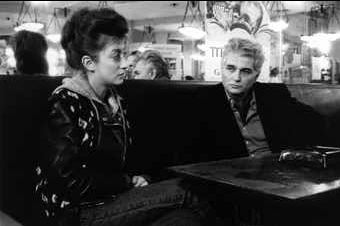 |
| September
19
This week we move into Derridean biography/analysis and, simultaneously, Derridean autobiography; read the first 212 pages of Geoffrey Bennington and Jacques Derrida's JACQUES DERRIDA duet. If you have the time or inclination, you might want to sneak a peek at a "conversation" Bennington and Derrida had at a conference in 1997. Bring a one-page close analysis (250 words, no more, no less) of what you perceive to be the MOST IMPORTANT sentence(s) from the reading for today. |
|
| September
26
Walk into our seminar room having FINISHED the Derrida/Bennington duet--while we will spend some time in discussion of this striking text, the bulk of class will be taken up with our screening of the DERRIDA movie by Amy Ziering Kofman and Kirby Dick. |
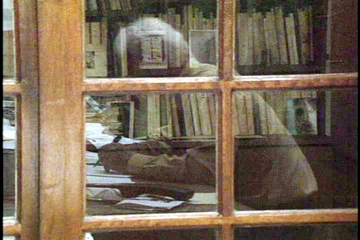 |
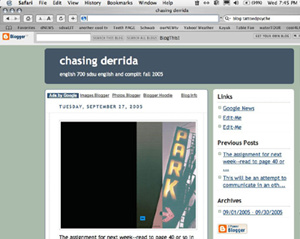
October 3 Reading JOURNALS day; seminar is cancelled to allow seminarians to catch up on their reading and writing assignments; read the first few sections of MEMOIRS OF THE BLIND. More details on your assignment is here or click the image on your right. |
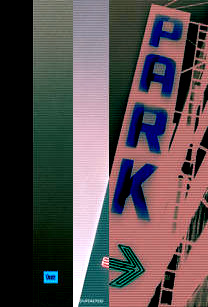 |
| October
10
A cool day as DERRIDEAN seminarians hold forth with readings from their RANTS--a brief writing assigmnent wherein derridean acolytes were asked to apply JACQUES writings/teachings to some aspect of what they view to be their FIELD! Also, we closely read the first few pages of MEMOIRS of the BLIND. |
|
| October
17
You walk into our seminar having finished your reading of MEMOIRS OF THE BLIND--be sure to read the whole book ONCE, and 'screen' the WHOLE BOOK once as well. Class is in AH 2128. |
|
| October 24
What a rought week! You walk in today having read ALL of ARCHIVE FEVER--it would be preferable if you read it in a cool library; I highly recommend the READING ROOM at USD. Enter the main library and take an immediate RIGHT. Walk straight through the big doors and into a beautiful archive for the arts! Class is in AH 2128. |
|
| October
31
movietime with charlie kaufman's amazing ETERNAL SUNSHINE OF A SPOTLESS mind, which, alongside ARCHIVE FEVER, its MNEME-envying magic, should be amazing. remember! we are going to have a soiree before class ON THE PATIO by my office; if the weather is bad, we will just have to use AH 4157. want to do some "reading" even though we will be watching a movie--then WATCH derrida WATCH or read his translation of WATCHING by reading RIGHT OF INSPECTION, his book with Marie-Françoise Plissart. |
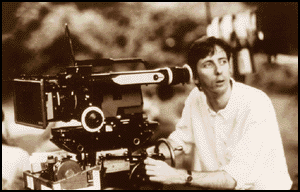 |
| november
7
read A TASTE FOR THE SECRET--class in 2128. |
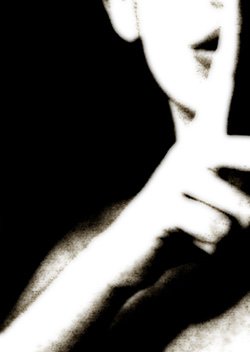 |
| november
14
read PAPER MACHINE. As you read, attend to your own current relationship with "paper machines"--the fact that you will soon be translating your own experiences in seminar and with Derrida's writings into dispatches issued via your own collection of paper machines is not without some intrigue of its own. 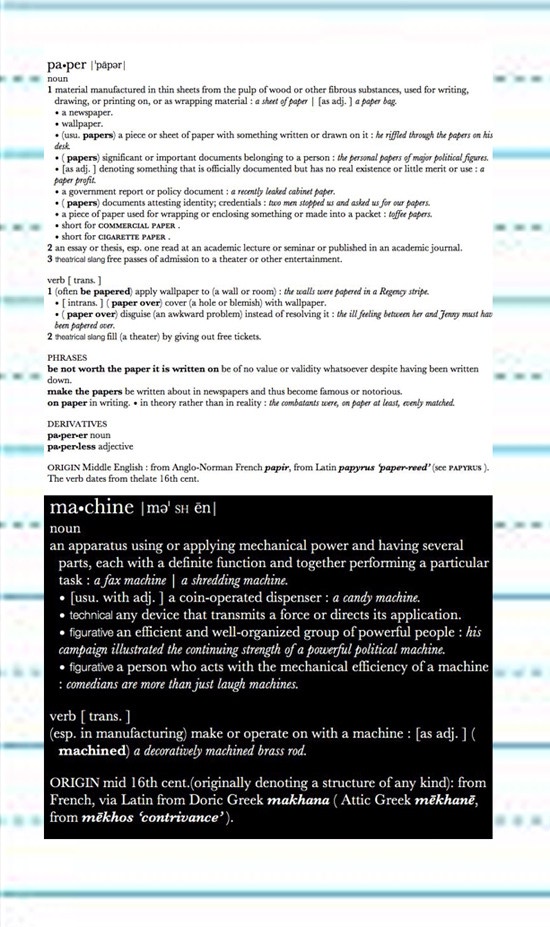 |
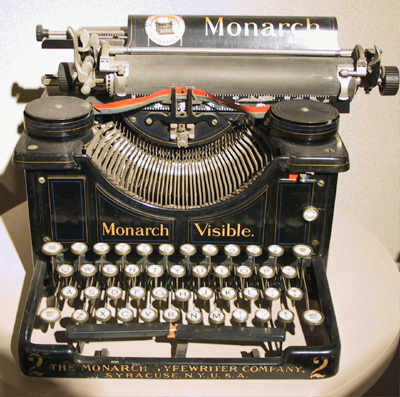 |
| november
21
discuss/read/screen RIGHTS OF INSPECTION |
 |
| november
28
no seminar--work on your papers |
 |
| december 5
derrida colloquium for ALL derrida seminarians. you will read 10 minute versions of your works in progress... think of this as rough draft day--a way of testing your material against the minds of your peers and your professor.
|
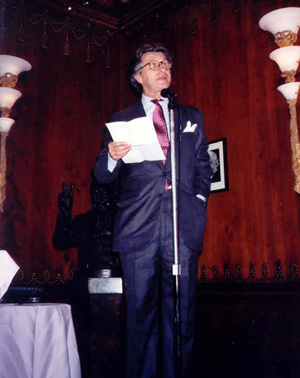 |
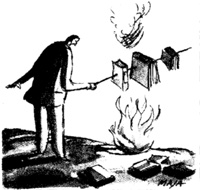 december
12, monday! december
12, monday!
final class; screening of flirt; turn in your papers & cocktail party. bring a handwritten copy of your favorite paragraph from all of your readings of derrida this semester; at the end of class we will read our paragraphs and burn them in honor of our fallen metaphrastic hersiarch.
|
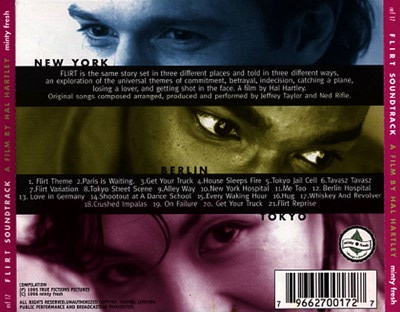 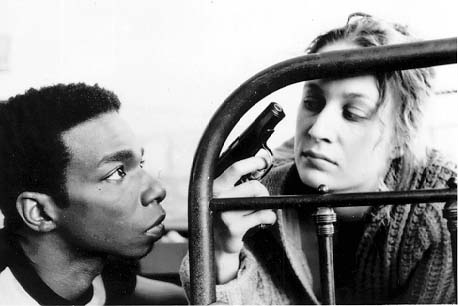 |
View the log for this page
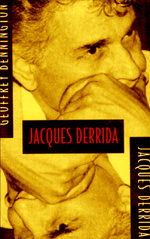 With
the work of Jacques Derrida we will have been, from the beginning, always
already, chasing--pursuing the elusive shadow of a brilliant mind that
has already anticipated our coming. He wants us to chase, or, (better put,
as he has recently left the realm of this chaotic planet), he wanted us
to chase. Jacques Derrida: the wily flirt, and we, his would-be, adoring
suitors. This graduate seminar will dedicate itself to a hunt, a safari,
a quest for Derrida and his major works, but I need to confess that the
focus will be on his later writings --sometimes at the expense of his earlier
operatic odysseys. So we will read Memoirs for the Blind,
With
the work of Jacques Derrida we will have been, from the beginning, always
already, chasing--pursuing the elusive shadow of a brilliant mind that
has already anticipated our coming. He wants us to chase, or, (better put,
as he has recently left the realm of this chaotic planet), he wanted us
to chase. Jacques Derrida: the wily flirt, and we, his would-be, adoring
suitors. This graduate seminar will dedicate itself to a hunt, a safari,
a quest for Derrida and his major works, but I need to confess that the
focus will be on his later writings --sometimes at the expense of his earlier
operatic odysseys. So we will read Memoirs for the Blind, 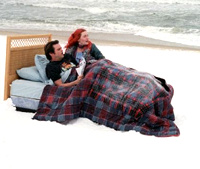 This
class is open to all graduate students in all disciplines; adventurous
undergraduates are also welcome to take the course for E499 credit with
the permission of your resident Derrida channeler for this holy philosophical
quest, Bill Nericcio (
This
class is open to all graduate students in all disciplines; adventurous
undergraduates are also welcome to take the course for E499 credit with
the permission of your resident Derrida channeler for this holy philosophical
quest, Bill Nericcio (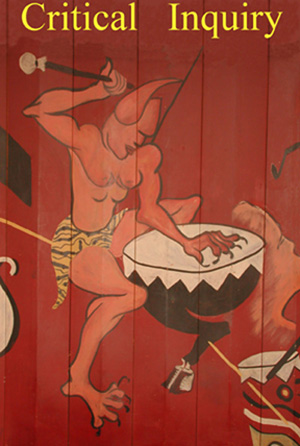 These
controversies have been solved for you in advance. As part of your assignment,
I want you to immerse yourself in the variety of journals now publishing
essays in literature, philosophy, film studies, cultural studies, comparative
literature and contemporary studies in comparative cultures. You may complete
this immersion here in Love Library, at USD or (better/prettier) or UCSD.
Some pretty good journals include: BOUNDARY 2, DIACRITICS, CRITICAL INQUIRY,
SOCIAL TEXT, PMLA, SOUTH ATLANTIC QUARTERLY, CAMERA OBSCURA and CINEMA
JOURNAL.
These
controversies have been solved for you in advance. As part of your assignment,
I want you to immerse yourself in the variety of journals now publishing
essays in literature, philosophy, film studies, cultural studies, comparative
literature and contemporary studies in comparative cultures. You may complete
this immersion here in Love Library, at USD or (better/prettier) or UCSD.
Some pretty good journals include: BOUNDARY 2, DIACRITICS, CRITICAL INQUIRY,
SOCIAL TEXT, PMLA, SOUTH ATLANTIC QUARTERLY, CAMERA OBSCURA and CINEMA
JOURNAL.
